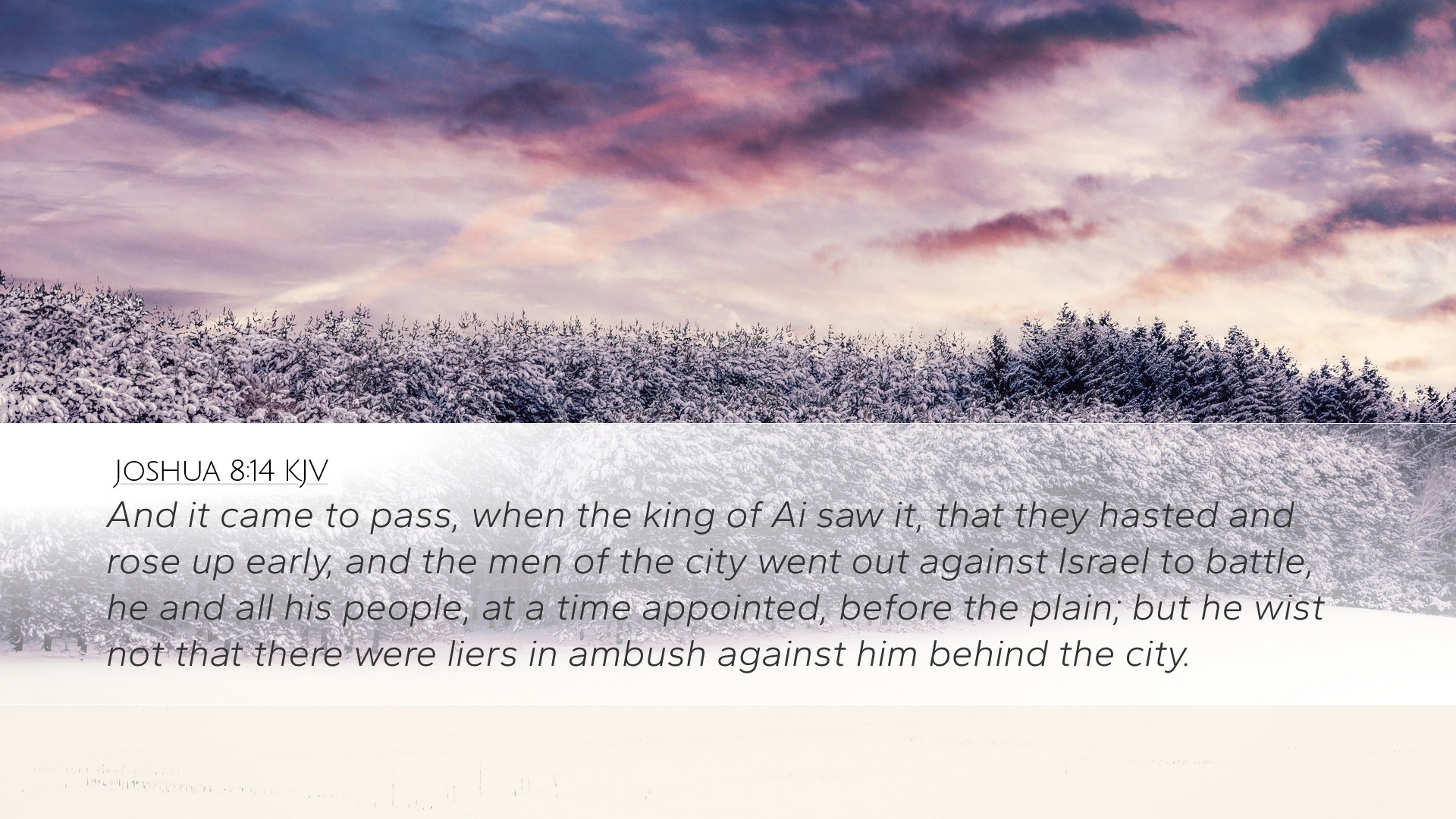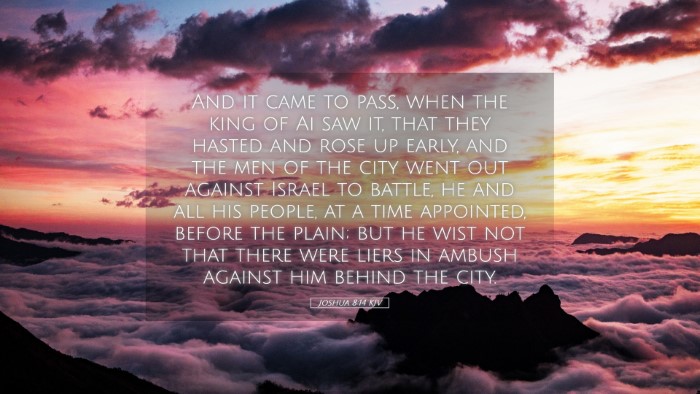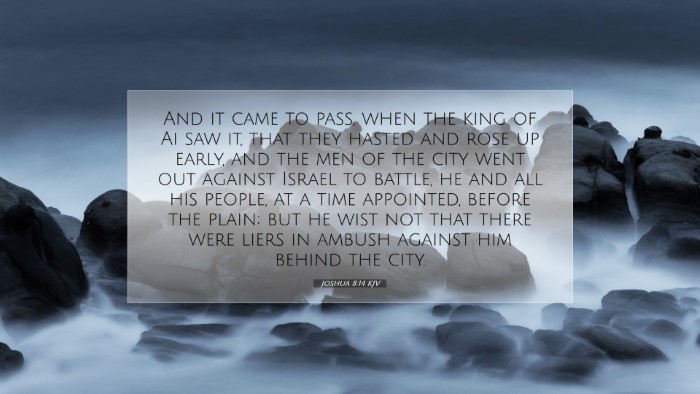Commentary on Joshua 8:14
Verse Context: "And it came to pass, when the king of Ai saw it, that he hasted and rose up early, and the men of the city went out against Israel to battle, he and all his people, at a time appointed before the plain; but he wist not that there were liers in ambush against him behind the city." (Joshua 8:14)
Introduction
This verse encapsulates a pivotal moment in the conquest of Ai, illustrating the strategic maneuvers employed by Israel under Joshua's leadership. The verse sets the stage for a significant military victory, revealing themes of deception, divine strategy, and the consequences of underestimating an opponent. The following commentary reflects insights from esteemed theologians and commentators such as Matthew Henry, Albert Barnes, and Adam Clarke, synthesizing their wisdom to provide deeper understanding of this text.
Theological Significance
The verse highlights the importance of divine guidance in warfare and leadership. Joshua, following God’s instruction, uses ambush tactics that not only reflect military acumen but also underscore God's providence in Israel's struggles. Adam Clarke elaborates that the strategy employed was vibrant with spiritual meaning—demonstrating that while physical preparations are essential, ultimate success comes from faithful adherence to God’s plan.
Historical Context
Joshua's engagement with the city of Ai follows a previous defeat, where Israel’s disobedience had led to failure (Joshua 7). This context is critical as it shows God’s mercy and the opportunity for redemption through obedience. Matthew Henry notes that the events surrounding the siege of Ai reflect broader themes of sin, judgment, and the necessity for Israel to restore their covenantal relationship with God. The swift reaction of the king of Ai, highlighted in the verse, reveals his overconfidence and the tragic miscalculation that leads to his downfall.
The Role of the King of Ai
Analyzing the character of the king of Ai, we observe a leader who is quick to mobilize his forces without considering the larger strategic picture. Albert Barnes interprets this haste as a sign of pride and a lack of discernment. The king, blinded by his ambition and previous successes, fails to recognize the potential threat of ambush, a reflection of the greater spiritual battle faced by all leaders—an overreliance on past victories without seeking God’s current counsel.
Spiritual Lessons
This passage serves as a reminder of the spiritual vigilance required of both leaders and followers. The readiness of the men from Ai to engage is paralleled with the call for believers to remain sober and vigilant, as emphasized in 1 Peter 5:8. It invites pastors and theologians to reflect on the need for continual prayer and dependence on divine wisdom rather than human strategy alone.
- Deception and Preparedness: The verse demonstrates how ambush—an act of deception—can be an effective strategy when wielded under divine directive. It aligns with the New Testament call to be shrewd as serpents but innocent as doves (Matthew 10:16).
- Handling Adversity: Leaders are to prepare for battles, not just physical but spiritual. The reactions of various leaders in Scripture can guide modern-day challenges in faith and leadership.
- Trusting Divine Strategy: In moments of trial, trusting in God’s strategy is paramount. The success achieved by Joshua was rooted in obedience and a careful listening to divine commands.
Conclusion
Joshua 8:14 is not merely a historical record but a rich text filled with spiritual significance for pastors, students, and theologians. It invites contemplation on leadership dynamics, divine strategy, and the importance of humility in facing adversaries. Through the lens of Henry, Barnes, and Clarke, we see how this event reflects the ongoing battle between faithfulness and pride, prudence and haste. As we reflect upon this verse, may it encourage us to seek God’s guidance in all our endeavors, trusting in His plans for victory even when faced with formidable challenges.


